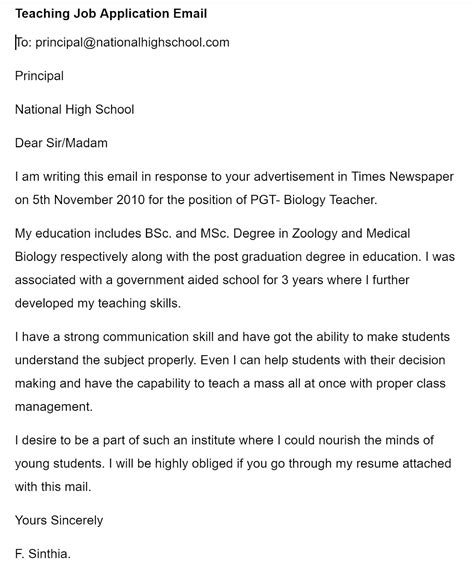Introduction

When applying for jobs, one of the early decisions you’ll make is whether to use your personal or university email address. While it may seem like a minor detail, your choice can impact your chances of being considered for a role.
Professionalism and Credibility
Using a university email address conveys professionalism and credibility. It demonstrates that you are a current or recent student, which can be an advantage in competitive job markets. It also suggests that you are familiar with academic writing and communication standards.
According to a recent study by CareerBuilder, 70% of employers prefer candidates who use professional email addresses on their resumes and job applications.
University Address Advantages
- Brand recognition: Your university’s name can lend credibility to your application, especially if the institution is well-respected in the industry.
- Uniformity: If you use your university email address, it ensures consistency across your application materials, which can enhance your professionalism.
- Access to resources: Some universities offer career services and job boards that are exclusive to students, which can be valuable resources.
University Address Disadvantages
- Expiration dates: University email addresses often expire after you graduate, which can create inconvenience if you are still actively job searching.
- Limited storage capacity: University email accounts may have limited storage capacity, which can be a concern if you have bulky attachments or receive a large volume of emails.
- Potential for spam: University email addresses are more likely to receive spam emails, which can be distracting and clutter your inbox.
Personal Address Advantages
- Flexibility: Personal email addresses are more flexible and do not expire, allowing you to use them for life.
- Control: You have complete control over your personal email address and can manage it as you wish.
- Convenience: You can easily access your personal email from any device or location.
Personal Address Disadvantages
- Lack of professionalism: Personal email addresses can come across as unprofessional, especially if they contain inappropriate or humorous content.
- Potential for privacy issues: Personal email addresses may be less secure than university email addresses, raising concerns about privacy.
- Bias: Some employers may have a bias against personal email addresses, assuming that they are less reliable or serious.
Other Considerations
- Industry norms: Research industry norms to determine if there is a preference for university or personal email addresses for job applications in your field.
- Company culture: Consider the culture of the company you are applying to. If they value tradition and formality, a university email address may be more appropriate.
- Your own judgment: Ultimately, the best decision for you will depend on your individual circumstances and preferences.
Conclusion
Whether or not to use your university email address for job applications is a decision that requires careful consideration. Weigh the advantages and disadvantages of each option and make the choice that best aligns with your personal brand and the requirements of the job you are applying for.
Tips and Tricks
- Use a professional-sounding username: If you choose to use your personal email address, ensure that your username is professional and appropriate. Avoid using nicknames or humorous references.
- Create a dedicated email address: If you do not have an existing professional email address, consider creating one specifically for job applications. This will provide a clean and organized platform for your correspondence.
- Proofread your emails: Before sending any job application email, proofread it thoroughly for any errors in grammar, spelling, or punctuation.
- Follow up appropriately: After submitting your application, follow up with the hiring manager within a reasonable timeframe to express your interest and inquire about the status of your application.
Frequently Asked Questions (FAQs)
-
Q: When is it acceptable to use my personal email address?
A: It is generally acceptable to use your personal email address if you have a strong professional-sounding username, have created a dedicated email address for job applications, or if you are applying to a company that has a more informal culture. -
Q: What if I do not have a university email address?
A: If you do not have a university email address, you can create a professional-sounding personal email address or use a third-party email provider that offers professional-looking addresses. -
Q: Is it okay to use a university email address after graduation?
A: It is generally not recommended to use a university email address after graduation unless you have been granted permission to do so by your university. -
Q: What should I do if I receive spam emails to my university email address?
A: If you receive spam emails to your university email address, you should report them to your university’s IT department. -
Q: Can I create a university email address if I am not a current student?
A: Some universities allow alumni or members of the community to create email addresses. Contact your university’s IT department to inquire about this possibility. -
Q: Is it always better to use a university email address?
A: No, it is not always better to use a university email address. Consider the industry norms, company culture, and your own preferences when making this decision.
